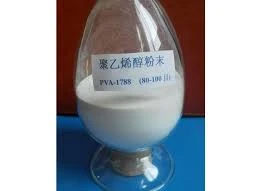Cellulose, a complex carbohydrate, is one of the most abundant organic polymers on Earth. It is primarily found in the cell walls of plants, providing them with structural support and rigidity. Composed of long chains of glucose molecules, cellulose serves as a vital component of the plant's anatomy, enabling it to withstand various environmental stresses.
One of the remarkable properties of cellulose is its insolubility in water, which makes it a crucial material in various industries. In the textile industry, cellulose is the fundamental component of cotton, linen, and other plant-based fibers. These natural fibers are favored for their breathability, durability, and comfort, making them indispensable in fashion and home textiles.
.
Beyond its traditional applications, cellulose has gained significant attention in the field of bioplastics and biofuels. As the world grapples with the challenges of plastic pollution and fossil fuel depletion, cellulose presents a promising alternative. Researchers are exploring methods to convert cellulose into biodegradable plastics that can reduce environmental impact. Additionally, cellulose can be processed to produce bioethanol, a renewable energy source that can help mitigate greenhouse gas emissions.
celulosa

Cellulose’s role extends to the food industry where it is used as a thickening agent, stabilizer, and dietary fiber supplement. It provides texture and bulk to various food products, making it an important ingredient in the formulation of processed foods.
Furthermore, advancements in biotechnology are paving the way for innovative applications of cellulose. Genetic engineering techniques are being employed to modify plants to produce more cellulose, which can enhance biomass for biofuel production. The potential for cellulose to be transformed into nanocellulose—a material with remarkable strength and lightweight properties—holds promise for future applications in nanotechnology and composite materials.
In summary, cellulose is an extraordinary substance that plays a pivotal role in numerous industries. From its applications in textiles and paper to its potential in sustainable materials and biofuels, cellulose is not only vital for plant life but also essential for creating a more sustainable future. Its versatility and abundance make it a key player in addressing some of the most pressing challenges of our time.
-
Rdp Powder: Key Considerations for Wholesalers in the Building Materials IndustryNewsJul.08,2025
-
Key Considerations for Wholesalers: Navigating the World of Hpmc - Based ProductsNewsJul.08,2025
-
Hpmc Detergent: Key Considerations for WholesalersNewsJul.08,2025
-
Key Considerations for Wholesalers: China Hpmc For Tile Adhesive, Coating Additives, Concrete Additives, and MoreNewsJul.08,2025
-
Crucial Considerations for Wholesalers: Navigating the World of Construction MaterialsNewsJul.08,2025
-
Key Considerations for Wholesalers Sourcing Additive For Cement, Additive For Concrete, Additive For Putty from Additive Manufacturer Shijiazhuang Gaocheng District Yongfeng Cellulose Co., Ltd.NewsJul.08,2025




